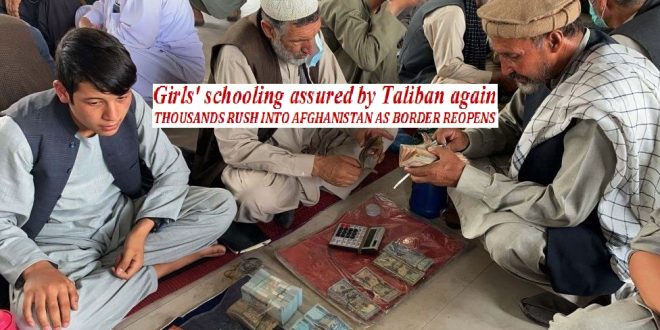03-11-2021
By SJA Jafri + Bureau Report + Agencies
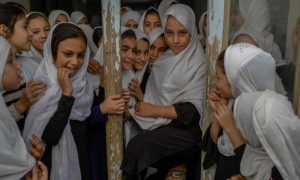 KABUL/ QUETTA/ ISLAMABAD: Afghanistan’s Taliban government announced a ban on the use of foreign currencies on Tuesday, threatening further disruption to an already ailing economy.
KABUL/ QUETTA/ ISLAMABAD: Afghanistan’s Taliban government announced a ban on the use of foreign currencies on Tuesday, threatening further disruption to an already ailing economy.
Since the group seized power in mid-August, the national currency Afghani has depreciated and the country’s reserves are frozen abroad.
With the economy teetering, banks are running short of cash and the international community has so far refused to recognize the new government.
Meanwhile, many transactions inside the country are conducted in US dollars, and in areas close to southern border trade routes, Pakistani rupees are used but, in a press statement, Taliban spokesman Zabiullah Mujahid declared that from now on, anyone using foreign currency for domestic business would be prosecuted.
“The economic situation and national interests in the country require that all Afghans use the Afghani currency in every transaction,” he said.
“The Islamic Emirate instructs all citizens, shopkeepers, traders, businessmen and the general public to henceforth conduct all transactions in Afghanis and strictly refrain from using foreign currency.”
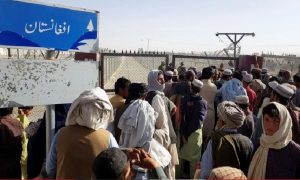 Earlier, thousands of people from Pakistan rushed into Afghanistan as the Chaman border crossing reopened on Tuesday after almost a month of closure.
Earlier, thousands of people from Pakistan rushed into Afghanistan as the Chaman border crossing reopened on Tuesday after almost a month of closure.
The Chaman border crossing is the second-largest commercial border point between the two countries which reopened after talks between the Afghan and Pakistan governments, Pakistani media reported.
“This border was closed for one month and three days. People were in great distress and discomfort. There was no work, no food,” said Bacha, an Afghan national.
The crossing, a vital source of customs revenue for the cash-strapped government in Afghanistan, was originally closed by Pakistani authorities due to security threats. Disputes over issues ranging from COVID-19 to the validity of Afghan travel documents have prevented the re-opening of the Chaman crossing, despite severe hardship to truckers and local farmers. In late October, hundreds of traders in Pakistan protested the border’s closure by blocking a local highway.
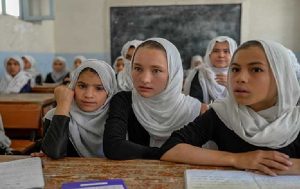 As Afghanistan sinks deeper into an economic crisis, neighboring countries have been increasingly worried about a mass movement of refugees.
As Afghanistan sinks deeper into an economic crisis, neighboring countries have been increasingly worried about a mass movement of refugees.
Meanwhile, the Taliban-led Afghan government has said it would announce good news soon on allowing older girls to resume schooling. However, they urged the international community to help it fund the process as most external aid has been halted.
Ensuring rights for women and girls has been one of the most sensitive issues facing the Taliban since they seized power in August, with international bodies demanding proof they were being respected before any discussion of formal recognition of the new government.
In September, the group drew global condemnation when it allowed boys to return to the classroom but told older girls to stay home until conditions permitted their return.
“We are committed to the rights of women and girls and we will educate them, that is our responsibility. That is not because of the pressure of the world,” Waheedullah Hashimi, Director of External Programs and Aid at the Ministry of Education, told Reuters in an interview on Sunday.
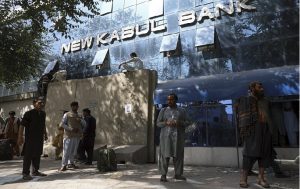 In some northern areas, girls have already resumed their education but others are forced to study in hiding and heavy skepticism remains with countries from the United States to Russia demanding they match promises with action.
In some northern areas, girls have already resumed their education but others are forced to study in hiding and heavy skepticism remains with countries from the United States to Russia demanding they match promises with action.
Hashimi said religious scholars are working on the issue.
The effective ban on educating girls beyond primary school echoed decisions by the Taliban’s previous government during 1996 to 2001 when women were largely shut out of paid employment and girls were not allowed to go to school.
Hashimi said that the movement was committed to educating girls and was working on ways of getting them back to school. He said no women teachers had been laid off, and that this was “a positive message to the world that we are working on a mechanism. We are not working on deleting them from our schools and universities.”
However, Hashimi also said that education, like other areas of government, had been hit hard by the abrupt withdrawal of foreign support following the collapse of the Western-backed government in August and he appealed for aid to be restored.
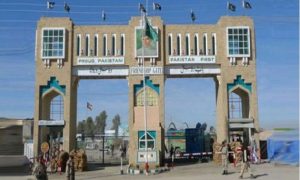 “If they truly want to see girls in schools, they ought to help us now,” Hashimi said.
“If they truly want to see girls in schools, they ought to help us now,” Hashimi said.
While education spending had been increasing slowly under the last government, a UNESCO report said that external aid represented almost half the education budget in 2020.
As well as the issue of girls’ education, Hashimi said the ministry was working on a new curriculum for schools to bring them into line with the principles of Islam, local culture, and international standards.
He said ministry officials had been working closely with international agencies, which he said had reacted positively to the parts they had seen.
However, he cautioned that the system would be set up in a manner that would be agreeable to the Taliban leadership and scholars, and not based on international pressure.
 Pressmediaofindia
Pressmediaofindia
